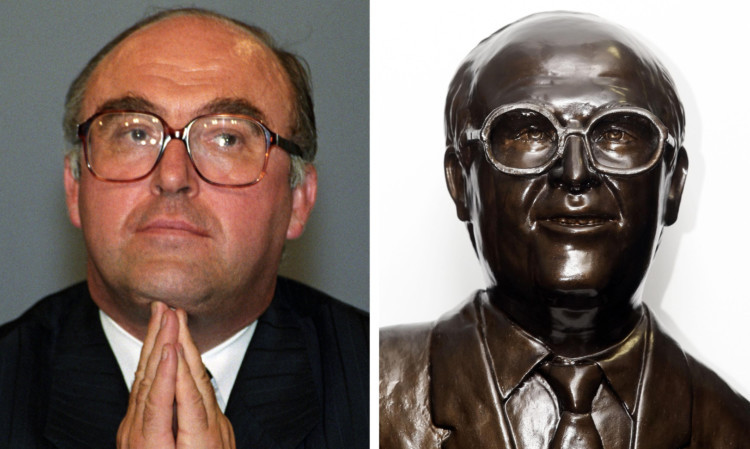
Douglas Alexander will call on all sides in the independence debate to honour the memory of Labour leader John Smith on the 20th anniversary of his death.
Alexander, now Shadow Foreign Secretary, will make a landmark speech tomorrow urging referendum campaigners to follow Smith’s lead and “disagree without being disagreeable” and to engage in “the politics of political
difference, not the politics of personal destruction.”
And in the face of criticism from the left of his party of the way Alexander is leading Labour’s re-election campaign he’s pointedly highlighted John Smith’s style of compromise politics.
Smith was killed by a heart attack on May 12 1994, aged 55. He had been Labour leader for less than two years and his sudden death sent shockwaves through the political establishment and the country at large.
Said Alexander: “I still remember receiving the call from Gordon Brown on that day. I was a law student in Edinburgh at the time and I still recollect the shock and the sadness. Labour had lost a great leader and Scotland one of its proudest sons.
“Margaret Beckett said “We mourn for one of our own” and there was a wide sense of loss across society.”
At the time, John Major’s administration already looked doomed despite being less than halfway through its term after Black Wednesday wrecked the Tory reputation for economic competence.
Added Alexander, who worked for John Smith as a speechwriter during the 1992 election campaign: “There was a real sense that we had lost a Prime Minister in waiting. Had he lived, John Smith would have been Prime Minister in 1997.”
Smith’s death triggered a Labour leadership election that saw Gordon Brown and Tony Blair agree the infamous deal that allowed the latter to take over at the top of the party. Blair was swept into Number 10 three years later with a massive majority.
It’s debatable whether Smith would have been as successful as Labour leader or PM but Alexander is not interested in alternative histories.
He says Smith was part of a process of making Labour electable that Blair completed. Added Alexander: “John was comfortable with both the responsibility and the compromises that come with holding office and holding power. He would’ve swapped 1000 years in opposition for one day in power to make people’s lives better.
“He had a picture of the Callaghan cabinet of which he was a member on the wall in his Edinburgh home as a weekly reminder as he set off for London that his task was to deliver a Labour government for the people he served.”
As Labour’s election supremo, Alexander is having to deal with flak from the left of his party. For example Unite leader Len McCluskey has criticised him and urged Labour to make a “bold offer” to the public in 2015 including rail nationalisation and an increase in the minimum wage.
It’s clear Alexander is hoping to remind critics that it was the ethos of Smith and Blair that made Labour winners in the 90s and noughties.
And tomorrow he will try to bring the spirit of John Smith to the independence debate.
At a speech in Edinburgh he will say: “The life of John Smith should offer us inspiration in how he treated those he disagreed with; with respect and understanding.”
“We all have a responsibility in the coming months to uphold the politics of opponents not of enemies. John was a formidable and unyielding debater but also a decent, civilised and generous human being.That’s one of the reasons he had so few enemies and so many friends.”
2014 also marks 15 years since the Scottish Parliament reconvened in Edinburgh.
Added Alexander: “I had immense pride that when the Scottish Parliament opened the “settled will of the Scottish people” as John Smith called it had been delivered by a Labour Government.”
And in his speech he will pay tribute to Smith’s devotion to devolution.
“For John, a devolved parliament was not just an icon of Scottish identity but also a workshop for social justice. It was not an end in itself but a means to end poverty, injustice and inequality.”

Enjoy the convenience of having The Sunday Post delivered as a digital ePaper straight to your smartphone, tablet or computer.
Subscribe for only £5.49 a month and enjoy all the benefits of the printed paper as a digital replica.
Subscribe